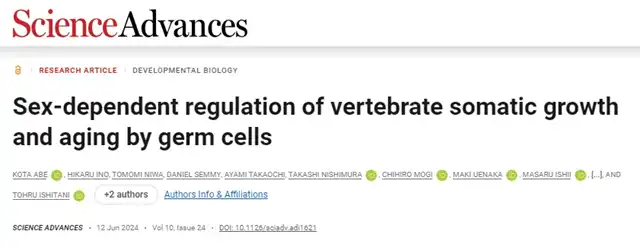A Common Vitamin May Prolong Lifespan
- Major Breakthrough in Infertility Research: This Stem Cell Could Be Key to IVF and Other Fertility Treatments
- Flesh-Eating Bacteria Infection Over 1000 Cases in Japan!
- CDC Recommends Updated COVID-19 Vaccines for 2024-2025 Season
- Will China and India produce cheaper “Miracle Weight Loss Drug”Semaglutide soon?
- Keto Diet Accelerates Aging and Promotes Cancer Metastasis
- The Critical Role of Immune Cell Triumvirates in Enhancing CD8+ T Cell Function
A Common Vitamin May Prolong Lifespan
- Chinese-made Drug Enters Australia: Causing at Least 20 Deaths!
- How serious is Japan’s “flesh-eating bacteria” problem?
- Taiwan 6th wave of COVID outbreak: 623 confirmed cases in one week and 38 deaths
- FDA has mandated a top-level black box warning for all marketed CAR-T therapies
- Can people with high blood pressure eat peanuts?
- What is the difference between dopamine and dobutamine?
- How long can the patient live after heart stent surgery?
A Common Vitamin May Prolong Lifespan
Interactions between reproduction, somatic growth, and aging are acknowledged in life history theory, which suggests that reproduction increases the cost of somatic growth and has a negative correlation with lifespan. The role of germ cells in somatic growth and aging has been confirmed in invertebrate models, but remains unclear in vertebrates.
Vitamin D, a fat-soluble vitamin, can be obtained from diet or synthesized by the body when skin is exposed to ultraviolet rays from sunlight. Vitamin D has multiple functions in the body, including roles in insulin secretion and glucose metabolism. It is well-known for maintaining bone health and aiding in the defense against infections and cancer.
On June 12, 2024, researchers from Osaka University in Japan published a study titled “Sex-dependent regulation of vertebrate somatic growth and aging by germ cells” in the journal Science Advances.
The study shows that differences in lifespan between sexes are related to germ cells (eggs and sperm), which can regulate the lifespan of vertebrates. In females, removing germ cells shortened lifespan and increased insulin-like growth factor 1 (IGF-1) signaling. Conversely, in males, removing germ cells extended lifespan and increased vitamin D signaling.

Additionally, when researchers treated the subjects with vitamin D, they found a significant extension in the lifespan of both sexes, indicating that vitamin D can improve health and prevent aging.
In this study, researchers analyzed a short-lived and fast-growing vertebrate model, the turquoise killifish, which, like humans, has a longer lifespan in females compared to males. They investigated the role of germ cells in somatic growth and aging.
Results showed that after removing the germ cells from both male and female turquoise killifish, the lifespan difference between sexes disappeared, suggesting that germ cells might be the cause of the lifespan difference in vertebrates.
Specifically, in females, removing germ cells significantly shortened their lifespan, reducing the average survival period by 6.6%. In contrast, removing male germ cells extended their lifespan, increasing the average survival period by 13%.
Furthermore, germ cell removal promoted somatic growth in turquoise killifish, increasing the body length and weight of older females by 10% and 27%, respectively, and increasing the body length and weight of older males by 5.7% and 16%.
This indicates that germ cells negatively regulate somatic growth in both males and females.
Further analysis revealed different hormone signals after germ cell removal in males and females. In females, the removal led to significantly lower estrogen signals, which can increase the risk of cardiovascular disease and shorten lifespan. IGF-1 signaling also increased significantly; lower IGF-1 signaling activity can suppress aging by reducing cellular stress, while higher IGF-1 signaling may accelerate aging by promoting cellular stress.
In males, germ cell removal improved overall health, including better muscle, skin, and bone health. Additionally, vitamin D signaling increased, with higher levels of a substance that activates vitamin D, suggesting that increased vitamin D signaling might extend male lifespan.
Finally, researchers found that vitamin D treatment significantly extended the survival rate of both females and males, indicating that activating vitamin D signaling can promote somatic growth and prevent aging in vertebrates.
The researchers suggest that vitamin D signaling may influence the lifespan of other vertebrates, including humans.
In summary, this discovery provides important clues about the interactions between reproduction, aging, and lifespan. The results indicate that germ cells regulate vertebrate lifespan, affecting male and female lifespan in opposite ways. Furthermore, vitamin D treatment helps extend the lifespan of both males and females. Further research on the impact of vitamin D signaling will help better understand the mechanisms that promote somatic growth and slow aging.
A Common Vitamin May Prolong Lifespan
(source:internet, reference only)
Disclaimer of medicaltrend.org
Important Note: The information provided is for informational purposes only and should not be considered as medical advice.



